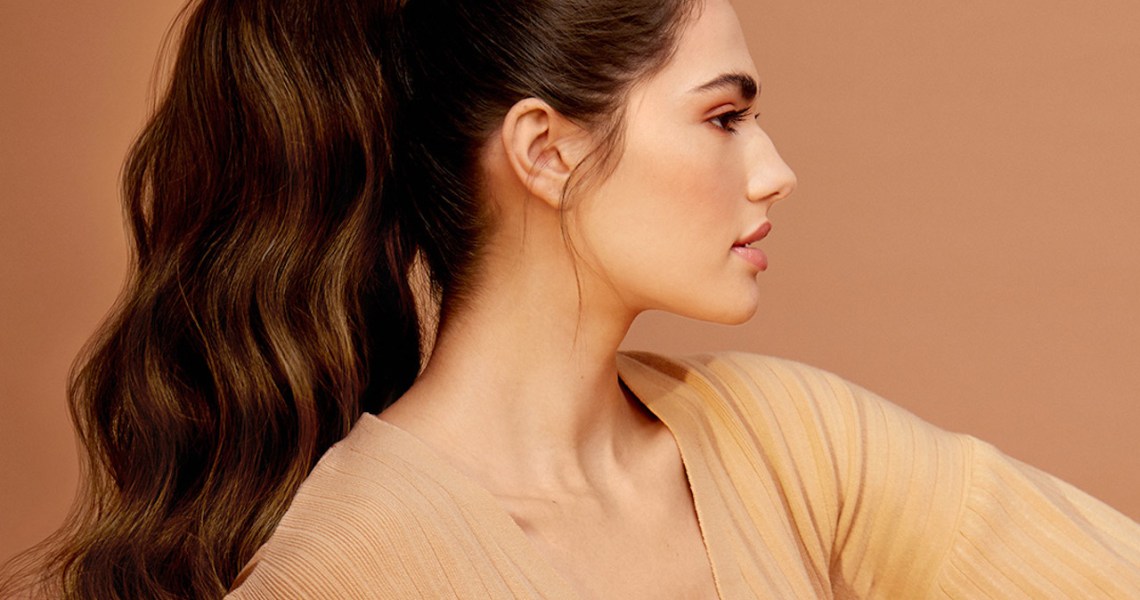As DIY beauty surges, shoppers are becoming more confident in their at-home abilities. Now, brands that fall in tertiary categories, like hair extensions and eyelashes, are seeing a boom.
Luxy Hair, a DTC hair extension brand that is part of the Beauty Industry Group, saw 83% year-over-year growth in April, said Lulu Liang, Luxy Hair CEO. Since the onset of Covid-19 in the U.S., the company’s Instagram engagement has grown by 30% and traffic to the website’s blog (driven by SEO and tutorial-driven content) increased by 60% to more than 500,000 visitors a month. In 2019, Luxy Hair reached more than $18 million in sales, and pre-coronavirus, it was forecasting 20% sales growth this year.
“We have seen a lot of low-hanging fruit that we believed we could capitalize on,” said Liang. “We’re very reasonably priced in the hair market and we have made the use case for extensions accessible [rather] than just for prom or a formal event.”
Like the overall hair category that has seen sales boosts in at-home hair color and root touch-up products, as salons nationwide putter to re-open, hair extension products have seen 62,000 more search volume online than in 2019, according to data technology firm Spate.
On April 21, Luxy Hair launched a line of ponytail extensions, and within the first 24 hours, it sold 200-plus units. To date, 70% of the collection has sold out. Beyond shoppers having more time on their hands, Liang credits the increased interest in extensions to shoppers who have steered clear from dyeing and cuts looking for an easy fix for salon treatments.
“We’ve done a lot of surveys with our customers, and they want to know how to use extensions to cover up their roots or make their hair look thicker or fuller on Zoom,” said Liang, who called the trend the “cover up, glow up.”
Sari Friedman, Luxy Hair director of marketing, added that developing engaging how-to content for Luxy Hair has been essential to growing market share. “We’re staying on top of trending keywords and producing high-quality articles that target these keywords with quick turnaround,” she said. “Although the content calendar was planned months ahead, we are never afraid to switch articles, create new content, or add or pivot content as needed.”
Luxy Hair now ranks among the first three results for 17,000 hair-related Google keywords, such as “How to wear clip in bangs.”
Sharon Pak and Jordynn Wynn, co-founders of hair extension and wig company Insert Name Here, are seeing parallel interest in their brand. Insert Name Here recently added educational content to its e-commerce site via blog posts on topics such as how to best color-match one’s hair with extensions and tips for application.
“We’ve seen an increase in search volume around ‘extensions’ and ‘how to wear extensions,’ and noticed an uptick in questions around high-quality extensions. During this time, word-of-mouth marketing has never been stronger, and I think we’ve been fortunate enough to have a reputation of very high quality products,” said Wynn.
This need for at-home prowess by the customer is also extending to the eyelash category, which has also been more of an in-salon service. Eyelashes have become a new winning category for Ulta’s GlamLab virtual try-on, which the retailer is now trying to grow, said Kecia Steelman, Ulta chief store operations officer and president of international.
New DTC brand Doe Lashes, which launched in fall 2019, has seen 150% month-over-month sales growth since January 2020, said founder Jason Wong. He explained that the company has found a sweet spot online, as women are forgoing expensive eyelash treatments in favor of Doe Lashes that retail for $12.50.
“A few years ago, falsies were something you would wear to glam up your look and not wear everyday, but it’s becoming an essential, especially in Asia,” said Michelle Phan, Doe Lashes advisor and Em Cosmetics founder. “Right now, you have just a few products that can make your face stand out. I would say eyelashes and brows are the ways to do that.”
Though consumer spending is unlikely to hit pre-Covid-19 levels in the immediate future, brands like Luxy Hair are seeing signs that their shopper is here to stay.
“After the stimulus checks went out in April, we had a bigger day sales day than Cyber Monday, which is typically our biggest day of the year,” said Liang. “It was the first thing our girl did with her checks. We feel really good about that and think we have momentum on our side. We were thinking about an omnichannel strategy before all this and were in conversation, but luckily, we didn’t sign any contracts or make any deposits.”




